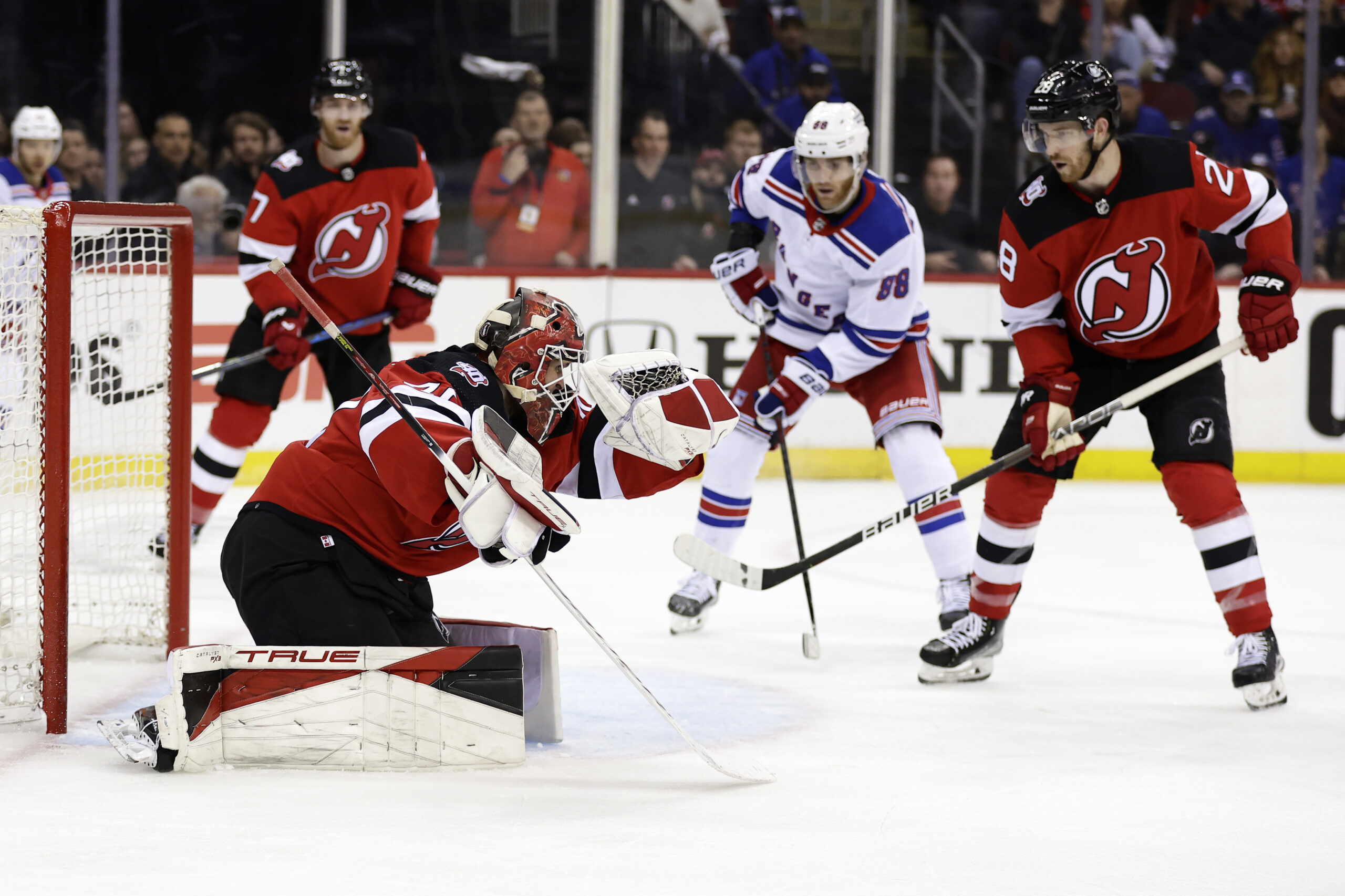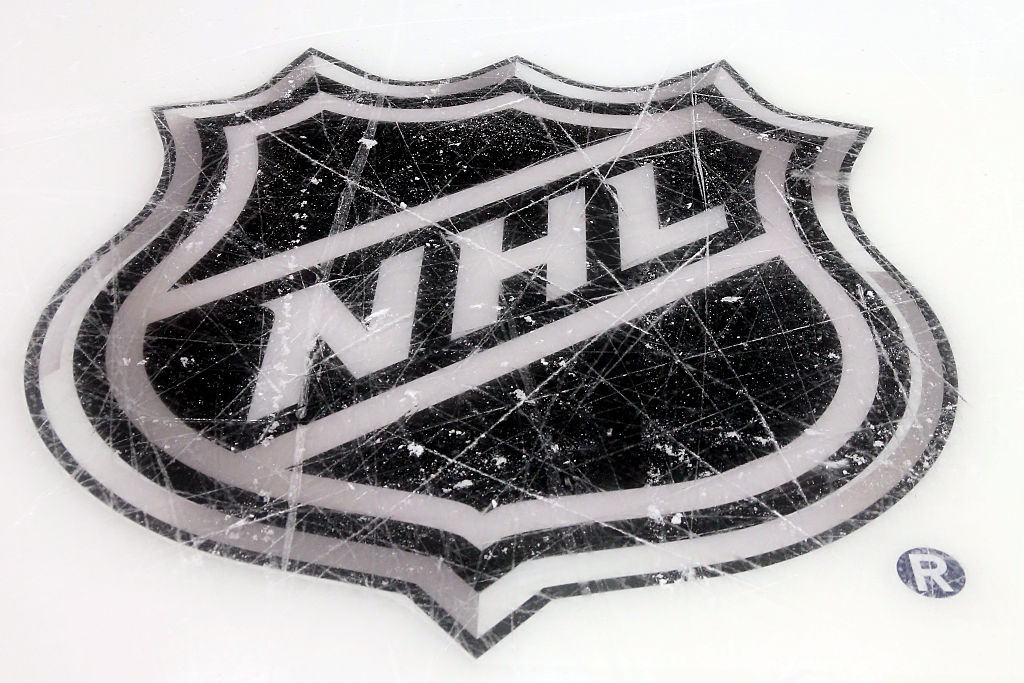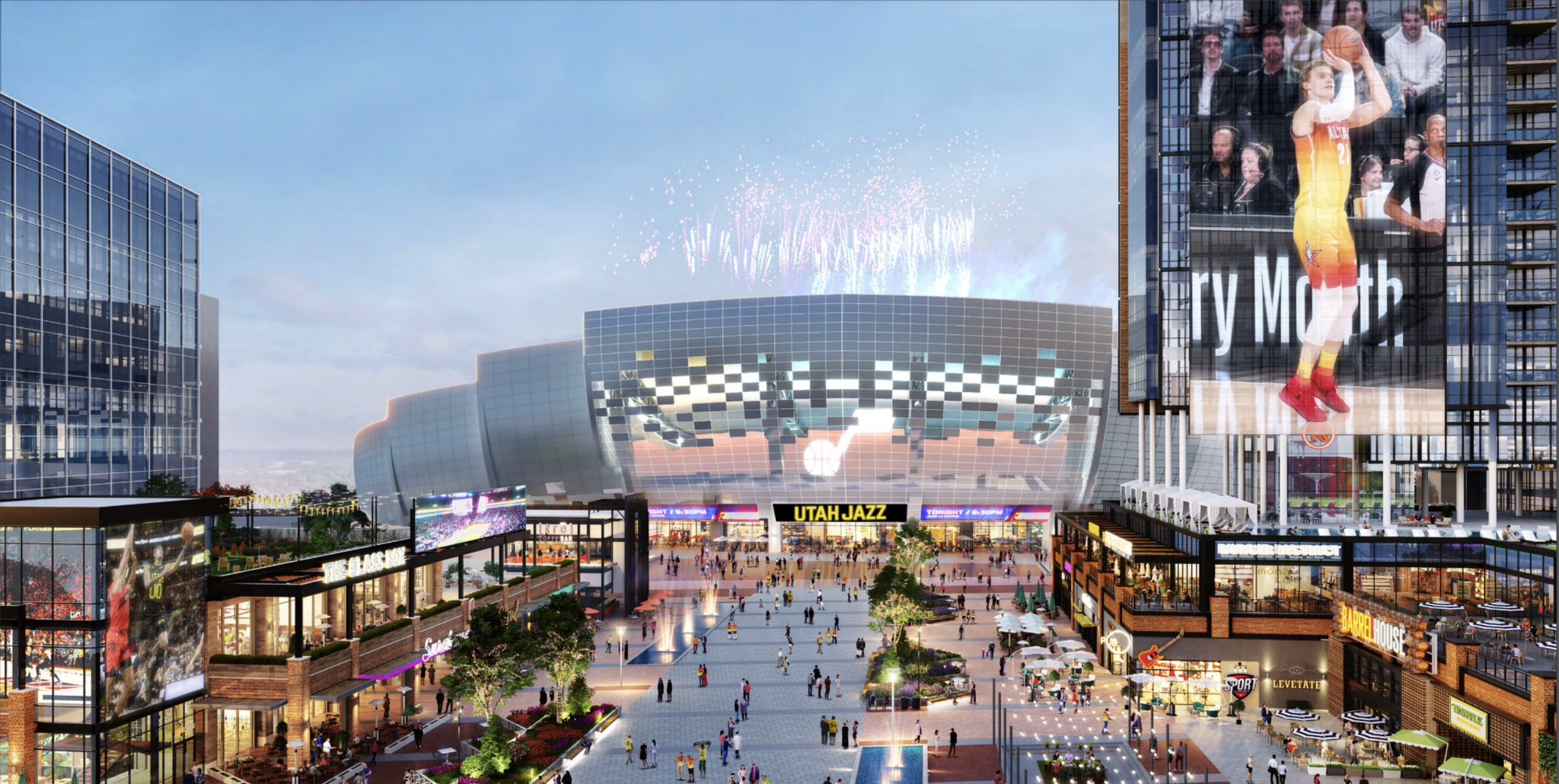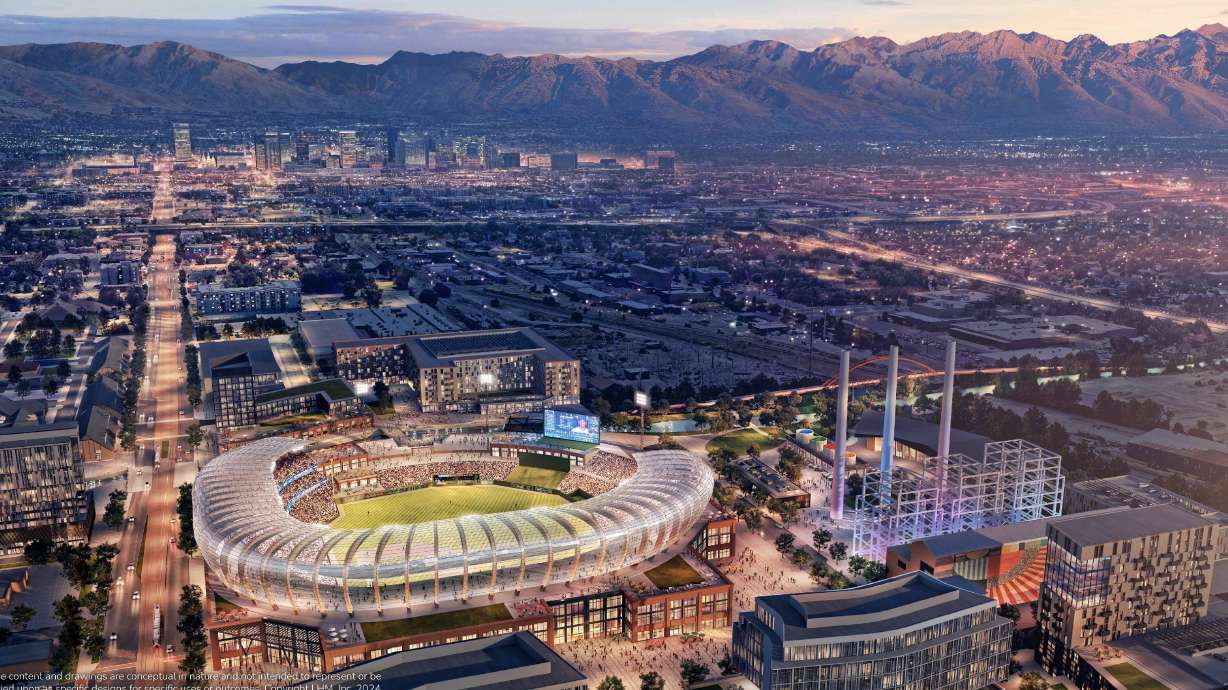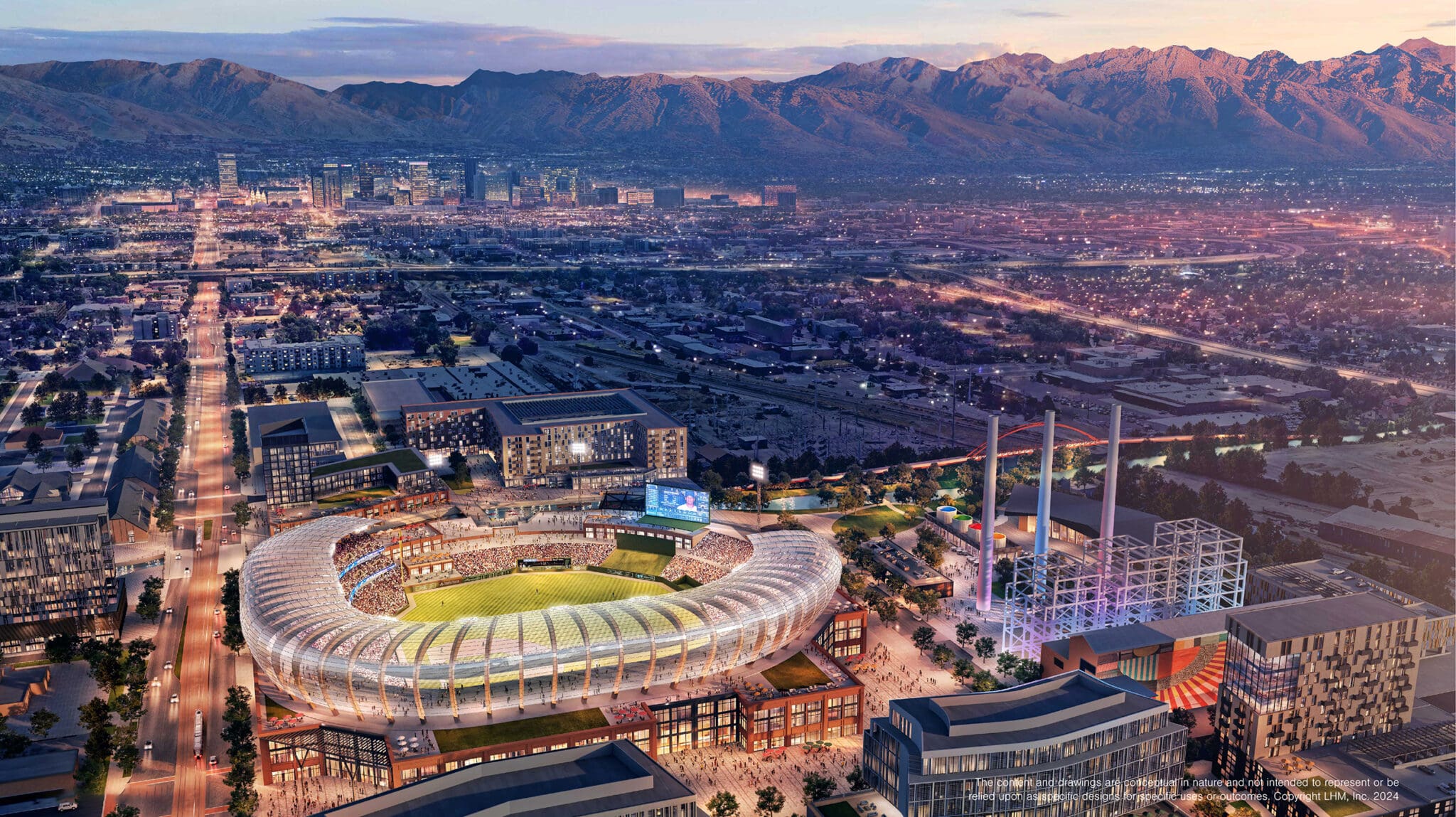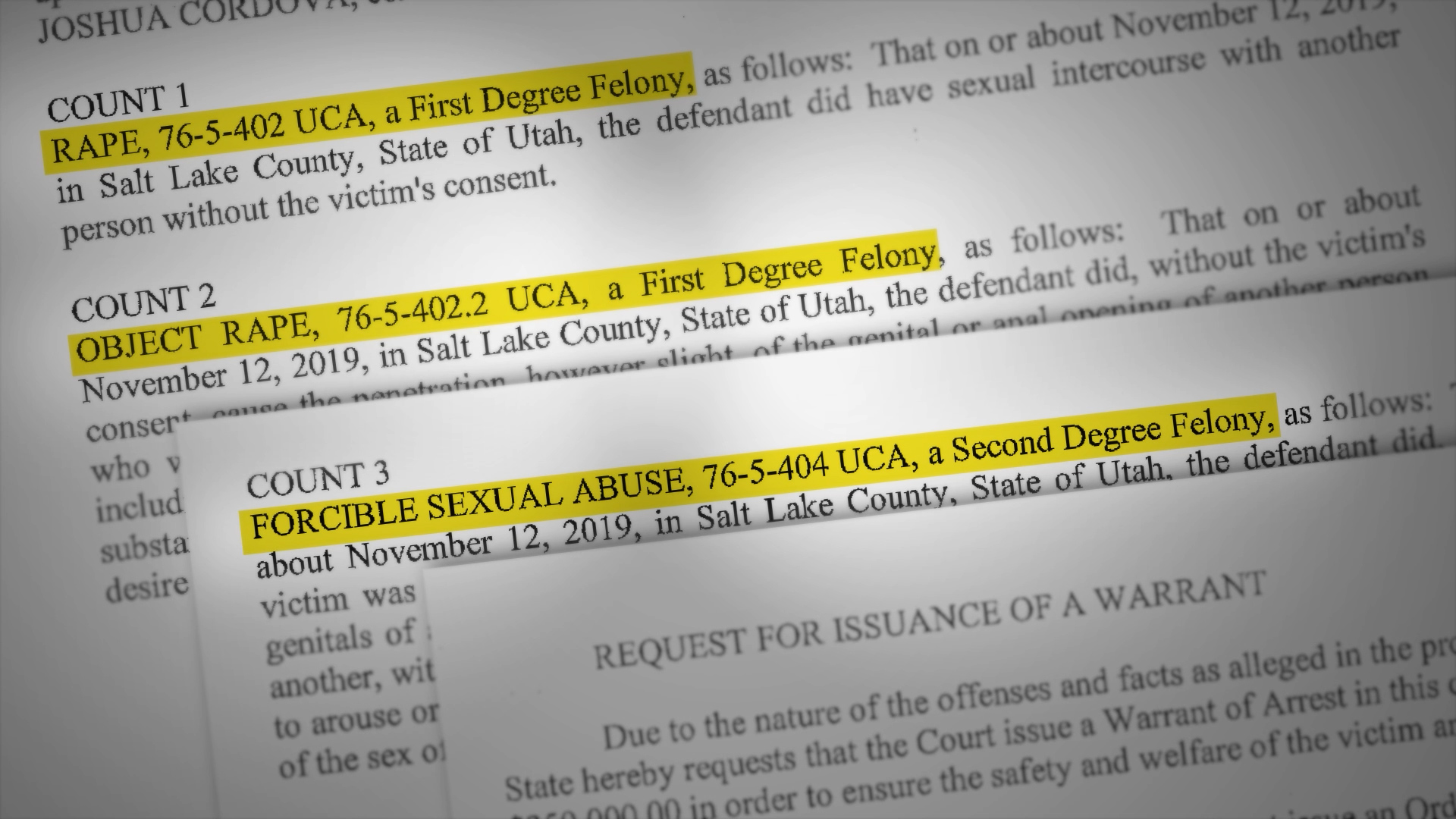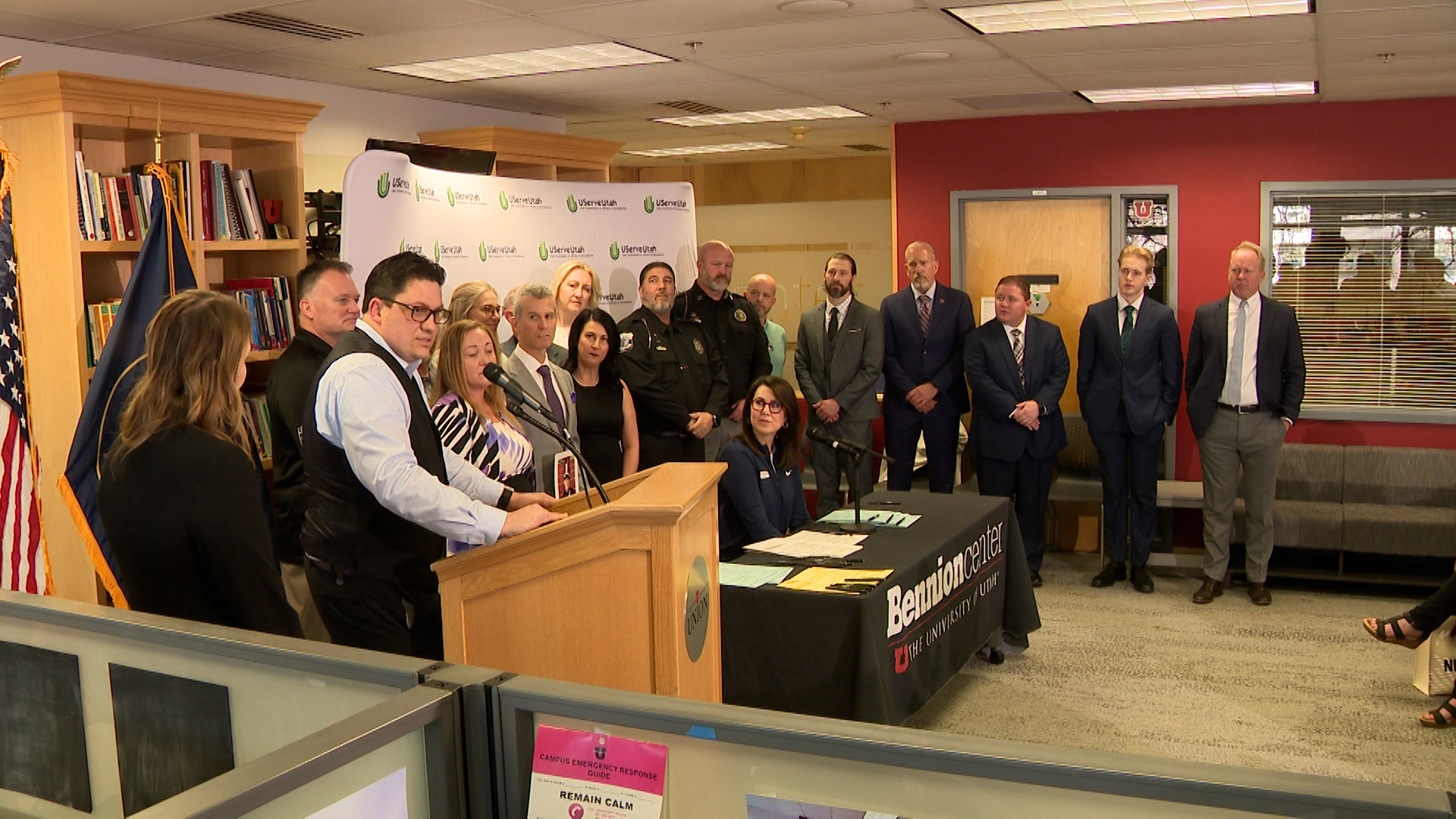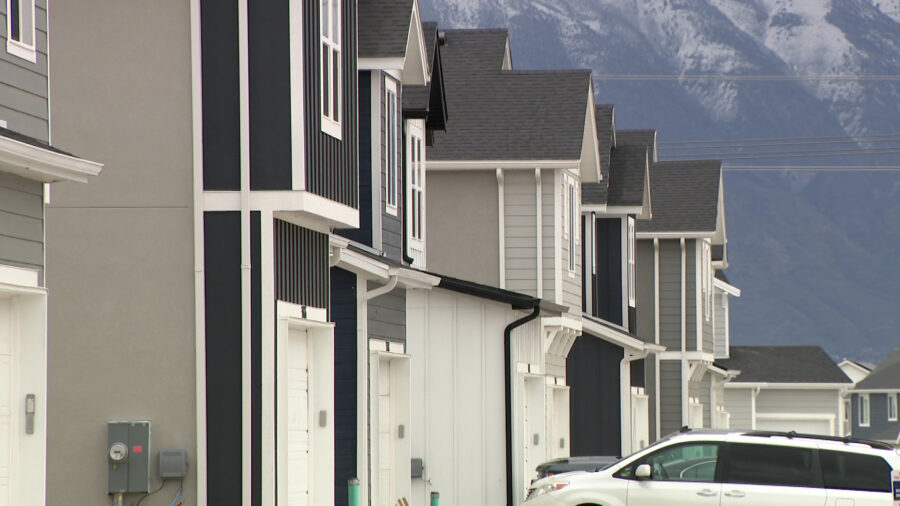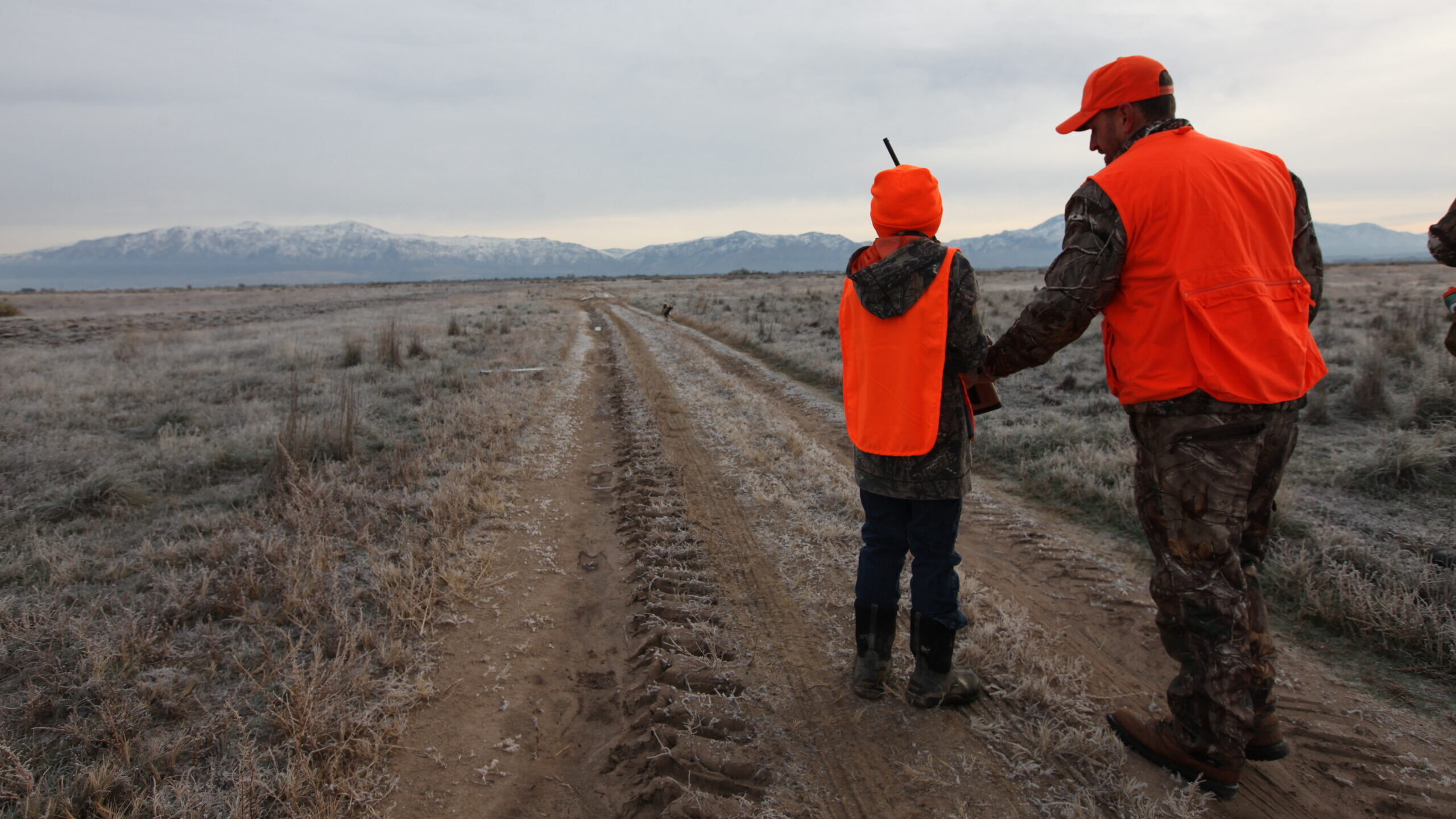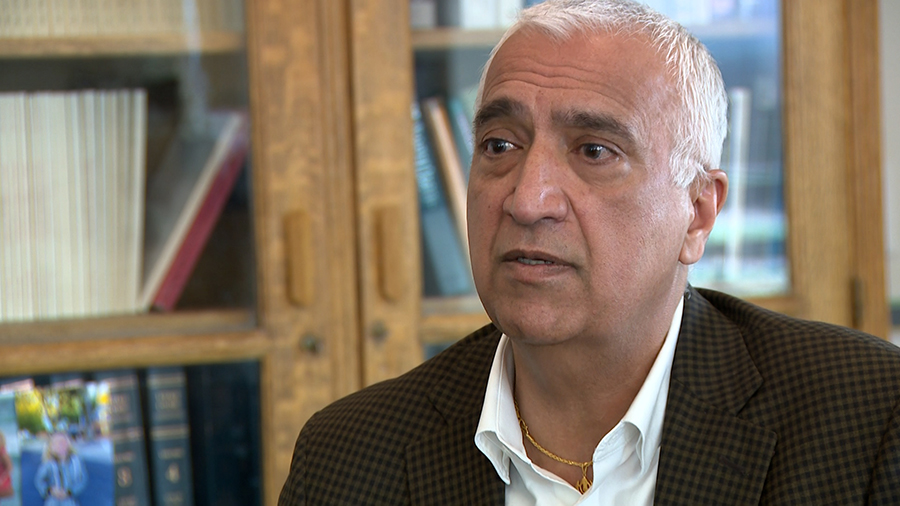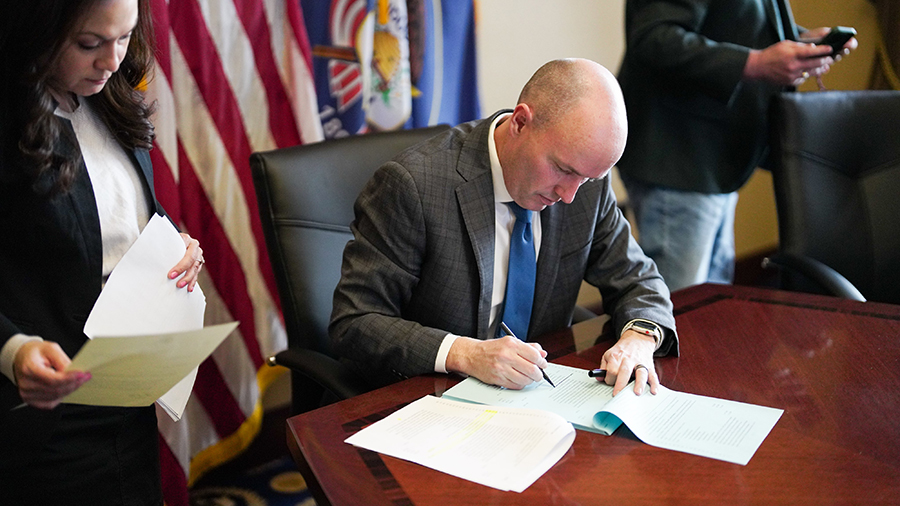Lawmakers debate NHL arena funding as Church supports project’s potential to ‘revitalize downtown’
Feb 29, 2024, 2:17 PM | Updated: Mar 1, 2024, 10:45 am
SALT LAKE CITY — The Utah House of Representatives is continuing to discuss a bill to fund a National Hockey League stadium and “sports and entertainment” district in downtown Salt Lake City as the clock ticks down on the 2024 general legislative session.
Members of the House have until Friday night to pass the bill and send it to Gov. Spencer Cox’s desk. On Tuesday, the Utah Senate voted 21-7 to pass an amended SB272, which sets up a Capital City Reinvestment Zone, including a possible new arena for the Utah Jazz and an NHL franchise.
The bill would fund the project area through a sales tax increase of up to 0.5% in Salt Lake City, which would push the sales tax rate in Utah’s capital city to 8.25%.
On Thursday, a spokesperson for The Church of Jesus Christ of Latter-day Saints told KSL TV’s Lindsay Aerts that the Church supports the potential impact of the project on downtown SLC.
“The Church has always demonstrated interest in making sure Utah’s capital city remains vibrant and attractive, both for those who live and work here as well as those who visit. As a stakeholder in the downtown community, where the Church’s global headquarters is positioned, we’re pleased with the potential this has to refresh and revitalize downtown Salt Lake City while presenting a safe and family-friendly gathering place for generations to come,” Church spokesperson Doug Andersen said in a statement.
NEW on NHL in downtown: The @Ch_JesusChrist tells me they are "pleased with the potential" of the NHL deal to refresh and revitalize downtown.
This bill still needs to pass the House to allow SLC to raise sales tax.
The Church owns a significant amount of land downtown. @KSL5TV pic.twitter.com/EeCzlMVusK
— Lindsay Aerts (@LindsayOnAir) February 29, 2024
The bill’s current version requires Salt Lake City to implement the tax increase by the end of this year. The investment is being seen as a sign that the Utah Jazz would almost surely stay downtown.
“I think if you saw that the Jazz leave, I think that would be a big blow to our capital city,” said Senate President Stuart Adams, R-Kaysville.
But raising taxes is giving pause to those who represent the city, with one representative saying she’s “cautiously” supportive.
“I’m really, really going to hold their feet to the fire when (the Smith Entertainment Group) promise(d) that they bring a lot of stakeholders to the table, that this is not just a business venture, that this is a community venture,” said Rep. Jennifer Dailey Provost, D-Salt Lake City.
“It’s a big ask to our community, the increase (in taxes),” added Senate Minority Leader Luz Escamilla, D-Salt Lake City. “But we want the Jazz.”
Salt Lake City Mayor Erin Mendenhall voiced her support for the proposal on Tuesday, presenting the bill alongside its sponsor, Sen. Dan McCay, R-Riverton.
“Instead of thinking of this as a hockey arena or a basketball arena … let’s think about our vibrant urban core that represents the Utah economy to the rest of the nation and to the world,” McCay said. “We’re not building an arena, we’re building a city.”
Utah Jazz governor Ryan Smith posted a rendering of a reimagined downtown Salt Lake City with a new sports and entertainment district, anchored by a new arena.
“Downtown Salt Lake City is the heart of Utah,” Smith said in his post. “Our efforts are not about an arena, it’s about revitalizing a downtown that desperately needs investment. Imagine a downtown experience like this with the NBA / NHL at its core.”
Ryan Smith teases reimagined downtown SLC with new arena as lawmakers debate billions in subsidies
However, economists broadly agree that arenas are “not economic development catalysts and confer limited social benefits.”
“It’s really across the board that these are really poor public investments,” said J.C. Bradbury, a Kennesaw State University economics professor who studies sports economics and stadium subsidies.
“There is little evidence that sports venues promote the type of commerce that downtowns need to prosper, and there are good reasons to think associated congestion and crime created by events hurt the area,” he said in a post that quoted Smith’s rendering.
“The ‘debate’ over whether stadium subsidies are good deals for local communities is like the ‘debate’ in the 1980s about whether cigarettes are bad for us: A legion of independent experts with decades of real-world evidence versus a few hired guns who won’t publish their data,” The Center for Economic Accountability posted.
SB272 is the second piece of legislation unveiled this week that would increase taxes for the construction of a sports and entertainment district.
On Tuesday, a bill came forward that would create a board with taxing authority to generate at least $900 million for the construction of a Major League Baseball stadium in the Fairpark neighborhood on Salt Lake City’s west side as part of a mixed-use development proposed by the Larry H. Miller Company.
HB562 would allow the board to levy a variety of taxes, including raising the state’s hotel and car rental taxes.
Lawmakers have approved HB562, sending it to Cox’s desk for signing. The governor has until March 21 to sign any bills from this session.

